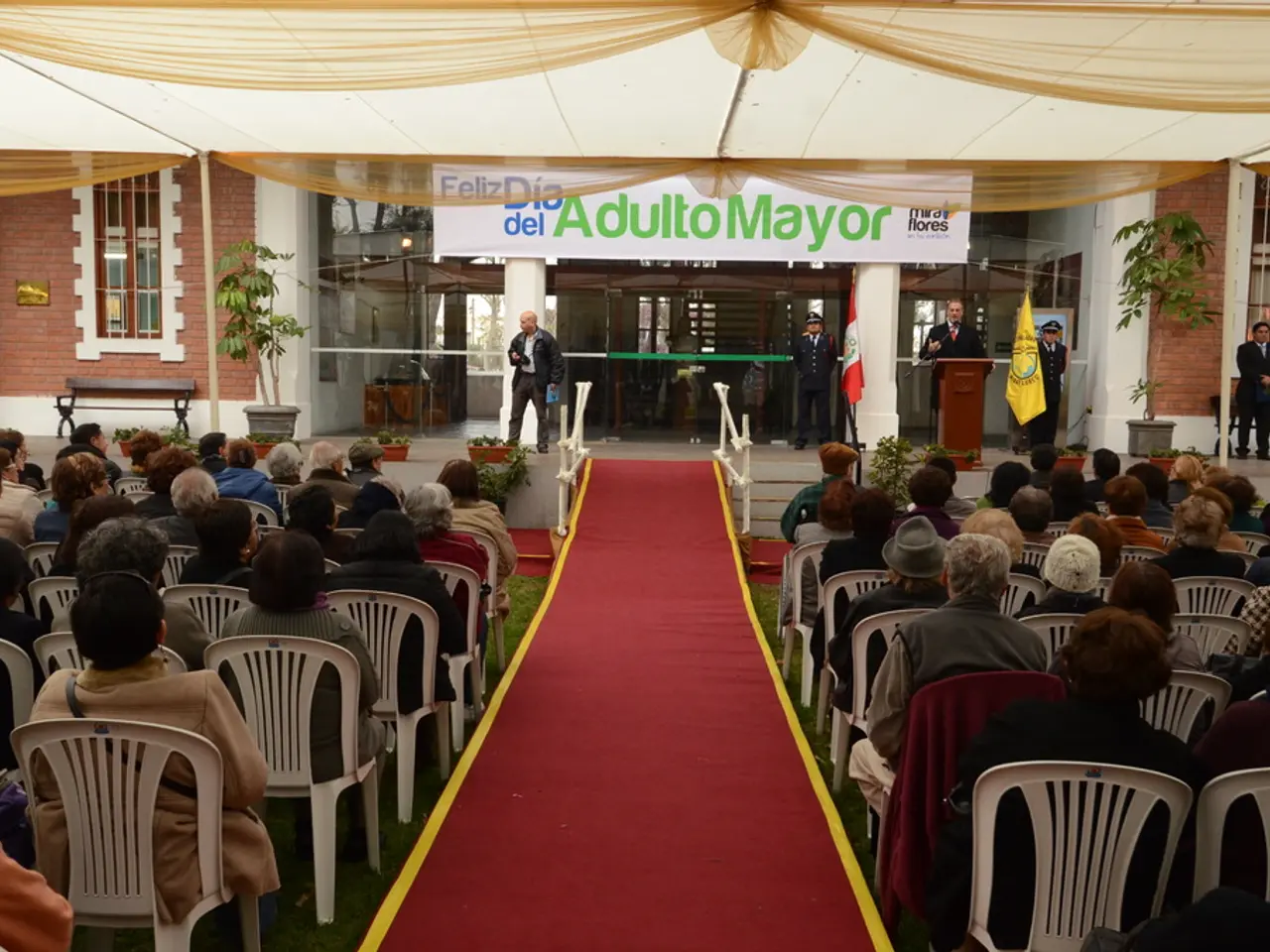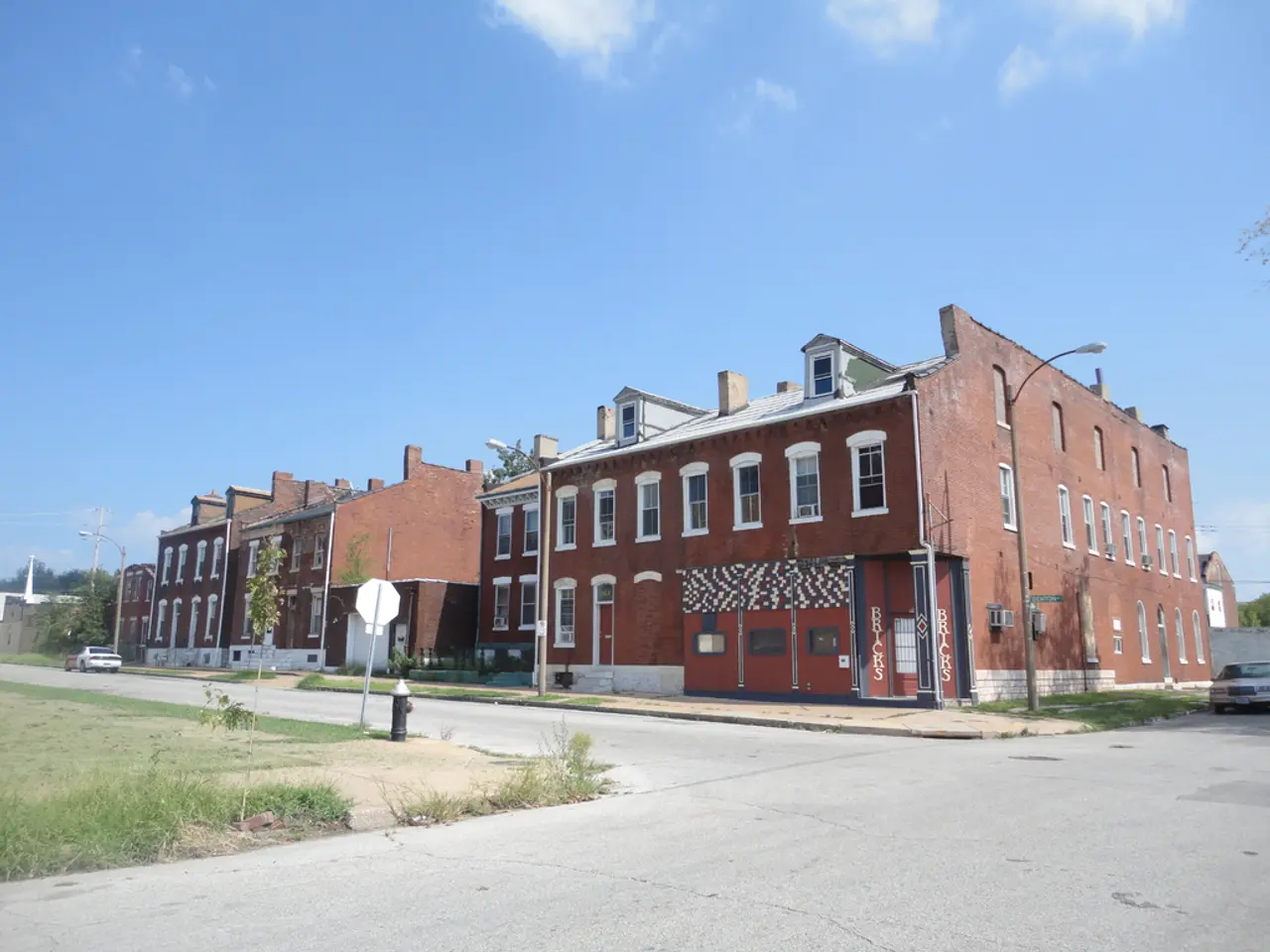Republicans advise Trump against dismissing the Federal Reserve chair, cautioning that such a move could negatively impact the economy, describing it as a significant error
In the current political climate of the United States, the question of whether the President has the power to fire the Federal Reserve Chair has once again come to the forefront. Here's a breakdown of the key points surrounding this issue and its potential implications.
The Federal Reserve Chair can be removed "for cause," a term generally defined as inefficiency, neglect of duty, or malfeasance in office, as per a Supreme Court ruling unrelated to the Federal Reserve[2]. However, the legality of removing a Federal Reserve Chair, particularly in the context of "for cause" removals, remains largely untested[1][3].
The independence of the Federal Reserve is a crucial aspect to maintain for the stability of monetary policy. Removing the chair could potentially challenge this independence[2]. Any attempt to fire the chair would likely face legal challenges, as some legal experts question the president's authority to take such action without clear justification[2].
The potential consequences of firing the chair extend beyond the legal realm. Firing the chair without a strong legal basis could have serious negative effects on financial markets, as it might suggest political interference in the central bank's decisions[1][3].
Senator Bernie Moreno, a Republican from Ohio, expressed his opinion that Powell is the most incompetent and worst Fed president in U.S. history. However, Senator John Kennedy, among others, understands Trump's frustration with the Fed's reluctance to lower interest rates while trying to control inflation but believes it's important that the Federal Reserve remains independent.
Senator Thom Tillis, a Republican from North Carolina, stated that the economic consequences of firing Powell would mainly hurt ordinary citizens. Mike Johnson, House Speaker, expressed uncertainty about the executive authority to fire Jerome Powell. Some Republican senators, such as Mike Rounds from South Dakota, warn that firing Powell could affect the forecasts and the integrity of the decisions the bank makes.
The show of support from Republican members of the Senate Committee on Banking, Housing, and Urban Affairs indicates traditional Republicans are acting carefully. Even those Republicans who argue that the president has grounds to fire Powell admitted that it would be a painful step.
The Trump administration has accused Powell of mishandling a $2.5 billion renovation project at the Fed's headquarters as a reason to remove him. However, it would be legally questionable to fire Powell over the renovation. Senator Elizabeth Warren criticized the investigation into the Fed's spending on building renovations, stating that it is too much and independence does not mean impunity.
In conclusion, while the president has the authority to remove the Federal Reserve Chair, it must be done for clear and legally recognized reasons. The legal implications of such an action are significant and could lead to both legal and economic repercussions. It is crucial for all parties involved to approach this matter with caution and consideration for the stability of the U.S. economy and the independence of the Federal Reserve.
- The States' debate on the President's power to fire the Federal Reserve Chair is intertwined with general news, politics, and crime-and-justice, as Senate members express opposing views on the matter, with some questioning the President's authority while others accuse the Chair of misconduct.
- Given the Colorado Supreme Court ruling, the Federal Reserve Chair can only be removed for 'cause' but the legality of such removals, particularly in the context of 'for cause' dismissals, remains relatively untested in the context of the Federal Reserve.
- The potential fallout of firing the Federal Reserve Chair extends beyond war-and-conflicts and policy-and-legislation. Such action could have serious negative effects on financial markets and might suggest political interference in the central bank's decisions, which could compromise the independence of the Federal Reserve.






